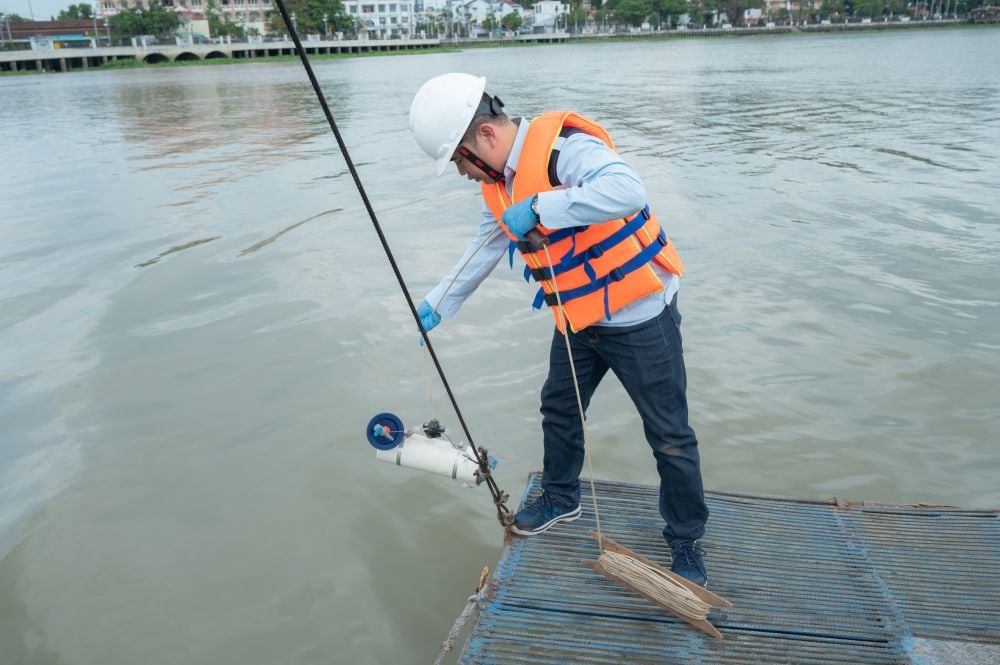
Mining infrastructure is increasingly synchronized
In recent times, Binh Duong has invested synchronously in surface water exploitation infrastructure, not only in water supply works but also in planning, monitoring and raising public awareness. The system of reservoirs, water plants, canals and inland rivers in the province is being effectively exploited, meeting the needs of water supply for daily life, production and environmental regulation. In addition to expanding the network of water plants, pipelines and pumping stations, Binh Duong also focuses on planning surface water resources in association with sustainable development orientation. Automatic and periodic monitoring systems have also been deployed to control water quality, promptly detect and handle pollution risks.
According to the water resources planning of Binh Duong province for the period of 2016 - 2025, with a vision to 2050, the total water resources of the province are estimated at more than 28.4 billion m³/year, of which surface water accounts for nearly 97%. The main sources include Dong Nai River, Saigon River, Be River, and large irrigation lake systems such as Phuoc Hoa and Suoi Giai. Binh Duong is also supplemented with about 473 million m³/year from Phuoc Hoa - Dau Tieng canal, creating an abundant water source serving many fields. Currently, the province has 38 irrigation works, dykes and drainage infrastructure, ensuring irrigation for more than 3,800 hectares of agricultural land and drainage for nearly 21,400 hectares of residential areas, urban areas and industrial parks. Of these, 27 irrigation works, 3 dykes and 8 drainage works play an important role in flood control and climate change response.
Currently, Binh Duong has more than 10 factories and centralized water supply works, with a total exploitation capacity of about 278 million m³/year. Large-scale factories such as Di An, Tan Hiep, Bau Bang help ensure stable domestic water supply for hundreds of thousands of households, gradually replacing drilled wells of households. The Department of Agriculture and Environment believes that surface water plays a strategic role in sustainable development. For each purpose of use, the exploitation system has its own scale and characteristics: Urban and industrial prioritize modern water plants and distribution networks; agriculture focuses on dams, pumping stations and canals. Each project not only contributes to reducing pressure on groundwater but is also consistent with the province's orientation for green industry and smart urban development in the future.
Contribute to green growth
Taking advantage of the abundant freshwater resources from the Dong Nai River, Be River and Saigon River, many localities in the province have effectively exploited the advantages of riverbanks to develop typical fruit growing areas. In Bac Tan Uyen district, citrus trees such as oranges, tangerines and grapefruits thrive thanks to fertile soil and stable surface water sources. In Thuan An City and Dau Tieng District, the Saigon River brings alluvium to nourish famous mangosteen gardens, creating a unique brand for each locality.
The story of the "transformation" of Hieu Liem land (Bac Tan Uyen district) is a vivid proof. Once a difficult land, this place has now become the largest fruit growing area in the province. Many famous farms such as Ba Tham, Tam Thuong, Tu Co, Pham Ngoc Minh... have an average scale of about 100 hectares, an output of 25 - 30 tons/ha, and an annual revenue of tens of billions of VND. The farms here all use high technology, applying automatic irrigation systems that exploit directly from the Dong Nai and Be rivers, both saving water and protecting the environment. Mr. Lam Thanh Thuong, the owner of a farm in Hieu Liem commune, shared: "Using a water-saving irrigation system with surface water helps us not have to dig ponds to store water, not worry about water shortages in the dry season and reduce many operating costs".
Mr. Mai Duc Quy, Chairman of Hieu Liem Commune People's Committee, said that exploiting surface water resources not only helps improve crop quality but also opens up opportunities for developing green, environmentally friendly agriculture. This is the foundation for the commune to move towards building a modern specialized farming area associated with eco-tourism.
Not only in agriculture, surface water is also an important solution for Binh Duong to develop sustainable industry. Binh Duong encourages industrial parks to use surface water instead of exploiting groundwater. Many industrial parks have been supplied with water from centralized factories; some enterprises have invested in water circulation systems, reusing water after treatment to meet standards, helping to save costs and reduce emissions. Binh Duong's surface water infrastructure is increasingly being improved, contributing to ensuring a stable water source for economic development, environmental protection and improving people's lives.
According to the Department of Agriculture and Environment, protecting water quality and restoring water resources is one of the current key tasks. To achieve this goal, Binh Duong is increasing the application of automation technology in monitoring and supervising the exploitation and use of water resources in sub-regions, on main rivers, as well as for organizations and facilities with large-scale water use and discharge. At the same time, the province's functional branches are stepping up inspection, examination and strict handling of violations in the field of water environment protection, promptly preventing risks of pollution. Strengthening coordination with river basin organizations to deploy water resource protection activities across the system in a synchronous, effective and sustainable manner... |
PROGRESS
Source: https://baobinhduong.vn/khai-thac-hieu-qua-nuoc-mat-thuc-day-phat-trien-ben-vung-a345900.html


![[Photo] President Luong Cuong presents the 40-year Party membership badge to Chief of the Office of the President Le Khanh Hai](https://vphoto.vietnam.vn/thumb/1200x675/vietnam/resource/IMAGE/2025/5/19/a22bc55dd7bf4a2ab7e3958d32282c15)

![[Photo] General Secretary To Lam attends the conference to review 10 years of implementing Directive No. 05 of the Politburo and evaluate the results of implementing Regulation No. 09 of the Central Public Security Party Committee.](https://vphoto.vietnam.vn/thumb/1200x675/vietnam/resource/IMAGE/2025/5/19/2f44458c655a4403acd7929dbbfa5039)
![[Photo] Close-up of Tang Long Bridge, Thu Duc City after repairing rutting](https://vphoto.vietnam.vn/thumb/1200x675/vietnam/resource/IMAGE/2025/5/19/086736d9d11f43198f5bd8d78df9bd41)

![[Photo] Panorama of the Opening Ceremony of the 43rd Nhan Dan Newspaper National Table Tennis Championship](https://vphoto.vietnam.vn/thumb/1200x675/vietnam/resource/IMAGE/2025/5/19/5e22950340b941309280448198bcf1d9)


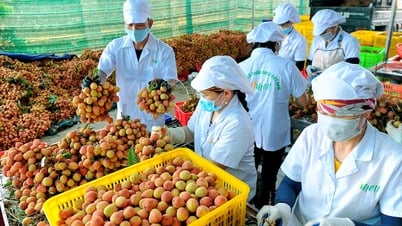

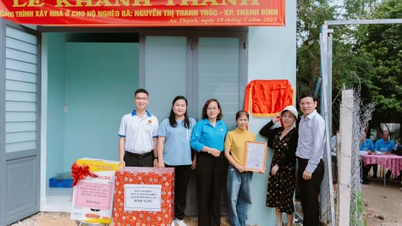
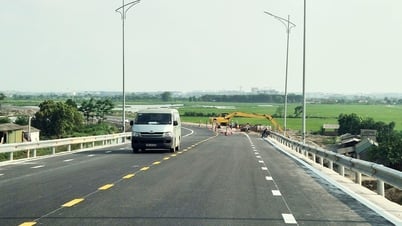

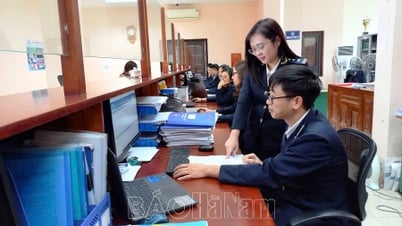






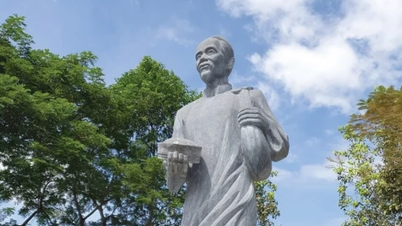
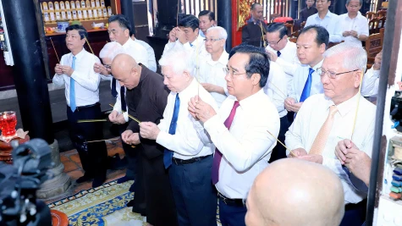
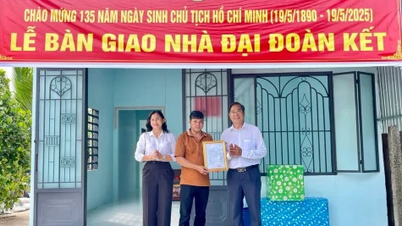

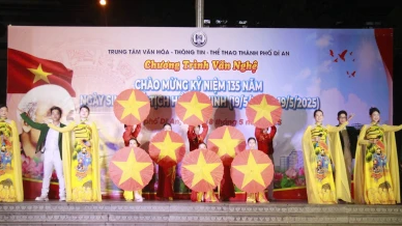
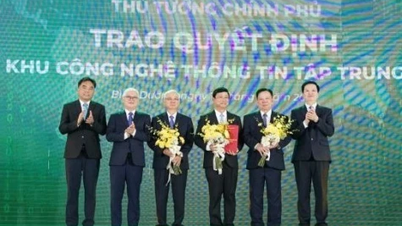
![[Photo] Prime Minister Pham Minh Chinh inspects the progress of the National Exhibition and Fair Center project](https://vphoto.vietnam.vn/thumb/1200x675/vietnam/resource/IMAGE/2025/5/19/35189ac8807140d897ad2b7d2583fbae)









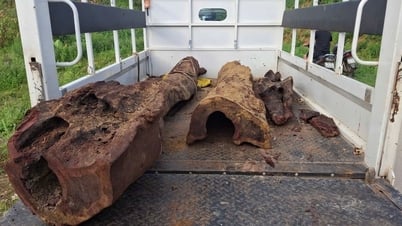











































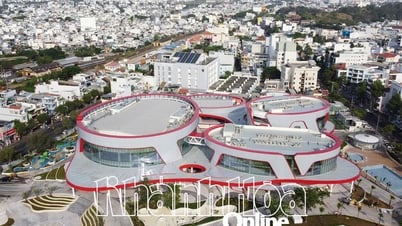



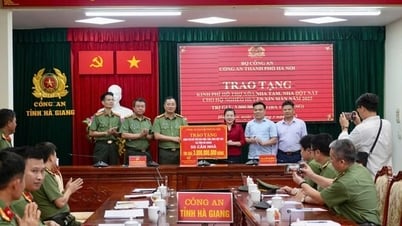




![[VIDEO] - Enhancing the value of Quang Nam OCOP products through trade connections](https://vphoto.vietnam.vn/thumb/402x226/vietnam/resource/IMAGE/2025/5/17/5be5b5fff1f14914986fad159097a677)





Comment (0)